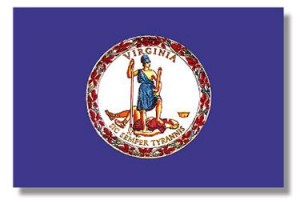Virginia Intervenes in Trinity Highway Qui Tam Lawsuit
Yesterday Virginia Attorney General Mark Herring announced the Commonwealth’s intervention in a qui tam lawsuit against Trinity Highway Products, LLC and Trinity Industries Inc. The initial qui tam Complaint was filed under seal (as required by Virginia Code 8.01-216.8) by relator Joshua Harman.
This case is not the first filed by Harman, which raises an interesting point we have discussed before on this blog. Like a great many other big ticket items in our society, the interstate system in the United States is a joint enterprise funded and maintained by the United States government and all 50 state governments. Even more specifically, the federal government reimburses states for certain highway-related spending, including but not limited to the installation of approved guardrails. Regular readers can see where I am going with this — that means that not only does the United States have a false claims act case against Trinity for submitting false claims to the federal government, but also that each state with a false claims-style statute would also have a claim.
Harman has, therefore, filed cases like the one in Virginia; ostensibly, he would have filed qui tam cases in other states as well that are still under seal. The federal qui tam case brought by Harman in Texas went to trial twice this year. The first attempt ended in a mistrial in July, but the second attempt resulted in a jury verdict of $175 million. And that is just the single damages. As we have discussed before in this blog, the jury’s function in a VFATA case is to determine liability and, if the defendant is liable, to calculate the damages in a case. This is a distinct and different issue than the actual judgment ultimately awarded to a plaintiff. Determining the amount of the actual judgment is work for the Court and, by way of the legislation, the Virginia General Assembly.
To my knowledge the federal Court has yet to hear post-trial motions and decide the amount of penalties and set the treble damages. But based on the evidence as I understand it, Trinity is a company that seems to really have it coming….
Unsafe at Any Speed — Trinity Industries and their Guardrail Debacle
The evidence that emerged in the first trial is, as I understand it, extremely unflattering for Trinity, to say the least. In a nutshell, after obtaining federal approval of its guardrail design (and by extension state approval, because the states defer decisions like this to the appropriate federal officials) the company radically changed the design of the guardrail by reducing the size of a key part from 5 inches to 4 inches. This made the guardrail much more dangerous than the model approved by the Transportation Safety Administration, and if Trinity had submitted this design originally, it would have never been approved.
The president of the company said plainly in his testimony in the first trial that the company did not tell the federal government or the government of a single state that used its product about design changes when they were made back in 2005. What’s worse, in at least one case that he could recall, they directly misinformed a state about it. Worse still, Trinity knowingly made this design alteration in order to save money, making this a fine example of a what I call the “switcheroo style” of qui tam case.
The Virginia case against Trinity
Harman, who is said by some accounts to be a native Virginian, is represented by Richmond lawyer Wyatt Durette and DuretteCrump, PLC.
Wyatt is a fine lawyer and I seem to recall from somewhere that his firm does have experience in qui tam/VFATA litigation, but I am not sure where.
I was unable to locate the original Complaint filed by the relator, but the Commonwealth’s Complaint in Intervention can be found here.
Bear in mind that announcing a new lawsuit asking for large damages is only one part of the equation. As we have seen before in Virginia there is a long way to go between there and the end…but I strongly believe this case has legs — and the extremely regulated world of interstate design is a completely different ball game from the wild-west of foreign currency exchange that we took on in the FX Analytics cases.
It also helps that there is a previous Texas jury verdict in the hundreds of millions for exactly the same conduct, so I will keep my fingers crossed on this one and hopefully there will be more good news soon!
